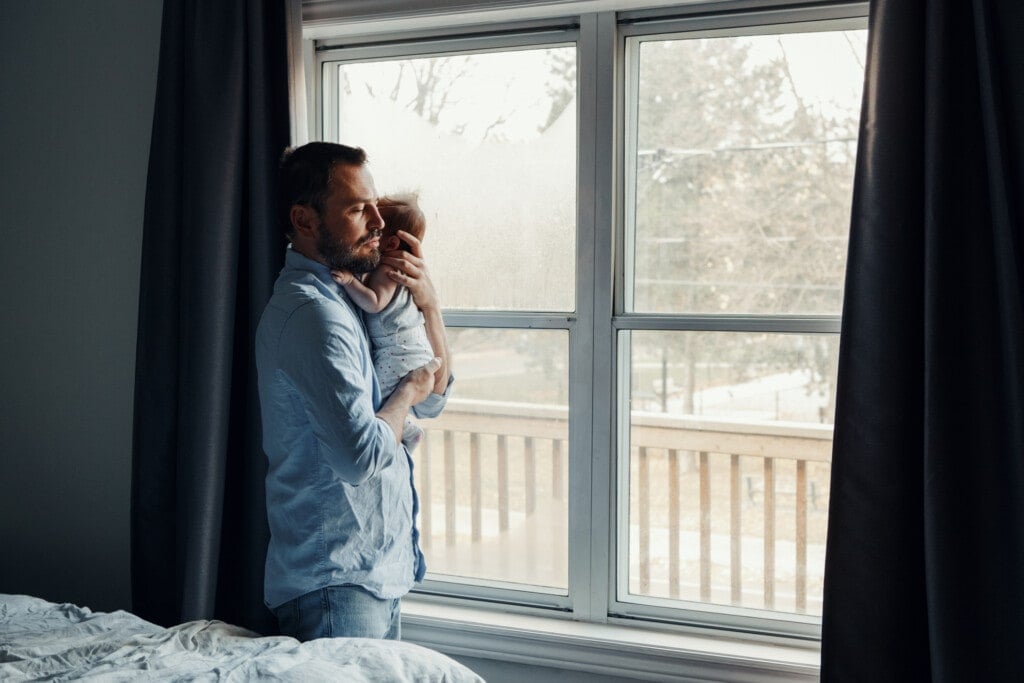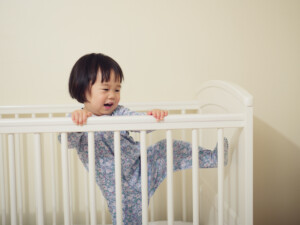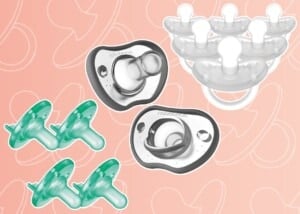The birth of your child is the greatest day of your life. It’s emotional, exhilarating, exhausting, and any other adjective you can think of. But like most things in life, the initial adrenaline and excitement wear off. That’s when the work begins and, in my case, the real stress begins.
My daughter Adley was born in May 2020, in the early days of the COVID-19 pandemic. Everything was locked down, and it wasn’t initially clear whether the hospital would allow me to be with my wife until moments before the baby was born. Luckily, I was there from induction until birth. All 56 hours if you’re keeping score at home. Adley was jaundiced and had low glucose levels. She was taken to the NICU less than four hours after being born, where she would stay for six days. It was stressful, but the real work began when we got home.
If you’re reading this article, you don’t need me to detail the sleepless nights, constant feedings, and countless diapers. By any measure, it’s a big adjustment, but it’s all worth it in the end. Nearly two years later, I can confidently say this is 100 percent true. At the moment, I wasn’t so sure. I always believed I would make a great father. By most accounts, I’m a nice and caring guy, so it seemed like a good fit. But as the first few days and weeks passed, doubt began to creep in.
When I Realized I Might Be Struggling With Depression
My wife had this incredible connection with our daughter. Every time she picked Adley up or rocked her to sleep, I could see it on her face. For me, it felt more like a chore. I was keeping this little human alive who had no idea who I was and could not show even the slightest appreciation for my sacrifice. It’s ridiculous to expect appreciation or gratitude from a child whose existence is measured in days and months, but that’s how it felt. Then the guilt set in.
Maybe I’m too selfish to be a good father if I feel this way.
Maybe this perfect child I helped create would be better off without me.
I started wondering if I was depressed. Initially, I chuckled at the thought a man could be dealing with postpartum depression. It doesn’t make sense, right? That’s something biological in women. To my surprise, postpartum depression in men is not a far-out concept.
Postpartum Depression In Men Is Not Uncommon
In a Cleveland Clinic article discussing the phenomenon, psychologist Scott Bea, PsyD, stated it’s not a phenomenon at all. Bea described postpartum depression in fathers as “wildly common.”3 Ten percent of new dads experience postpartum depression. According to the National Institute of Health, that rate climbs to 25 percent in the first three to six months of a child’s life.4 Like most forms of depression, there’s no one sign to look for. In my case, seeing the connection between my wife and daughter made me feel guilty and out of place, almost like a third wheel in my own family.
Although many assume that depression is about low mood or feeling sad, the Cleveland Clinic points to other signs like anger, irritability, acting distant, and losing interest in favorite activities.3 A formal diagnosis of Postpartum Depression remains the same regardless of gender. However, there is much less research and, in turn, much less understanding of how postpartum depression presents in men.
Symptoms of PPD in Men
The symptoms must be present for more than two weeks. They can occur from four weeks after birth to a full year afterward. The symptoms cause significant stress or challenges in normal social, occupational, or other areas of functioning. Symptoms can include:
- Depressed or low mood, sadness, tearfulness, and/or hopelessness that occurs for most of the day (and happens nearly every day).
- Loss of interest in things you would usually enjoy.
- Weight loss or gain (increase or decreased appetite).
- Difficulty sleeping, including excessively sleeping or trouble sleeping (getting to sleep or staying asleep).
- Irritation, feeling restless.
- Feeling flat (demotivated, hard to energize, feeling “slowed down”).
- Fatigue or low energy.
- Feelings of worthlessness, excessive or inappropriate guilt.
- Having trouble concentrating, paying attention, and being indecisive.
- Recurring thoughts of death, potentially including suicidal ideation, suicide attempts, or plans to complete suicide.*1
*Please note that if you are experiencing any of these symptoms, seek medical support immediately.
There is no single thing that causes postpartum depression. Many things are thought to increase risk or influence who might experience it. It is believed that postpartum depression in women is influenced in part by hormones (among other things like the history of a mood disorder, postpartum support, lack of sleep, a difficult pregnancy, etc.). Some emerging research indicates that there’s also evidence of a change in hormone levels in men after a baby is born that can lead to depression, according to a 2017 NIH study.5
However, some men feel pretty separated from the birthing experience and so minimize the potential impact of postpartum depression and other mental health conditions associated with the postpartum period. Since they didn’t give birth, they don’t always feel that their experiences are as valid as their partners.2 Put together, this signals an issue rarely discussed and, in many cases, men are hesitant to deal with.
I never considered myself depressed after Adley was born, even if I was questioning my capabilities as a father. But researching this article gives me a new perspective on what I went through. This is in no way comparing my experience to what my wife or any other new mother goes through. On top of the attachment issues and feelings I described above, they also birthed a human. The physical, hormonal, and emotional toll of that act alone puts mothers on a different level.
But the first step to solving problems is recognizing them. That’s what needs to happen regarding postpartum depression in fathers. Be upfront. Talk to your spouse, family, or a medical professional about what you’re going through. Ultimately, it’s another way to improve your life and relationship with your child.
When My Clouds Began To Lift
I began feeling differently at around the seven-month mark. That’s when Adley started showing her personality, and I believe our bond began to grow stronger. Two months after her first birthday, I left my job as an investigative reporter to become a full-time stay-at-home dad.
In a matter of months, I went from feeling unfit for fatherhood to wanting to devote all my time to it. That’s how quickly things can change. Everyone has a different journey; I don’t expect other fathers to feel the same way. But know that those feelings of doubt and frustration pass. If they don’t, ask for help. It’s out there and can put you one step closer to being the parent you want to be.















